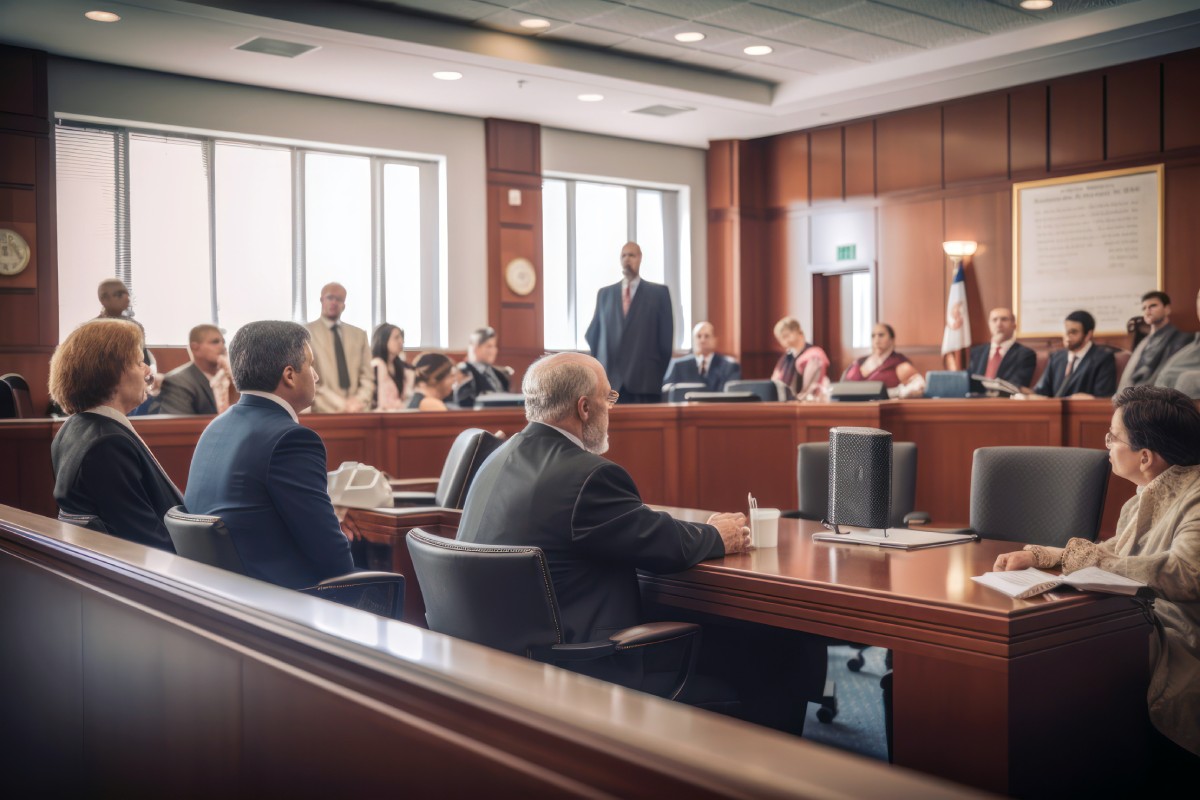What to know if you settle or take your case to trial
Personal injury claims may arise from many causes: some of the most common ones result from slip and fall accidents, auto and pedestrian accidents, construction site accidents, skiing and sports accidents, medical malpractice, dog bites, defective products, and so on. Sadly, such cases are fairly common in the United States, leading to a startling number of personal injury claims filed each year.
Did you know: only about 4% of personal injury claims go to trial?
According to the Bureau of Justice Statistics, only about 3-4% of personal injury cases go to trial, which means that the vast majority of them are resolved through settlement.
Reaching a settlement
A personal injury lawyer will first investigate your case and collect all required information and evidence. The next step is to file a claim for personal injury with the insurance company, along with a settlement demand.
Here is the general process of how to reach a settlement:
Case investigation & evidence collection
A Greenwood Village personal injury lawyer will first investigate your case and collect all required information, documentation, and evidence.
Filing a claim & settlement demand
The next step is to file a personal injury claim with the relevant insurance company, accompanied by a settlement demand.
Pre-litigation phase & settlement options
This period follows your accident when your lawyer prepares your case before presenting your claim to the insurance company. Most injury cases settle during this phase.
Litigation & mediation for settlements
Even after a lawsuit is filed, settlements often occur before trial. The aim of litigation is to reach a mutually acceptable settlement, often through mediation.
Settlement without going to trial
In most cases following an accident, your lawyer will file a claim with the at-fault party’s insurance company, along with a letter of demand. The defendant or their insurance company will review it and will likely send a counteroffer. This marks the beginning of negotiations. During this phase, you will either reach a settlement agreement or decide to go to trial.
There are a number of factors that will affect the outcome of such negotiations. These include the specific circumstances of your case, the available evidence, but also the aggressiveness with which each side will pursue their interests.
The most important thing to remember is that personal injury settlements constitute written agreements that are binding upon the parties. Consequently, once you sign one, you will no longer be able to contest the validity of the amount. If the defendant fails to pay the agreed claim, you can rely on the settlement agreement to file a contract lawsuit against them.
Why should you settle without going to trial?
The main advantage of settling without going to trial is that you will receive your payment faster. It is also possible that you are satisfied with the amount offered following negotiations, especially if the amount in dispute in your case is relatively small when compared to the cost of opting for litigation. You may thus find it easier to manage risks if you proceed this way rather than going to trial. In other words, settling out of court may be less risky, as uncertainty is higher in personal injury trials.
Having said that, it is unlikely that the other side will offer the amount of money you will be requesting unless they are forced to do so. So, you may have to accept less than what a court might have ordered had your case gone to trial.
While it is hard to accurately predict what the outcome would have been if you had opted for litigation and whether you would, in fact, receive a better payment, having an experienced injury lawyer by your side will be a definite plus. Insurance companies will be more willing to settle and offer a generous amount if they know they will be facing a successful personal injury lawyer should the matter go to trial.
Our team at Legal Help in Colorado has a very successful track record, we are well aware of the ways in which insurance companies conduct negotiations, and we are not in the least intimidated by their tactics.

Resolving your case in court
Only a very small percentage of personal injury cases end up going to trial in the U.S. Even so, there is no guarantee that every single case will be successfully settled without having to do so.
Once a case goes to trial, it is in the hands of the court to find a solution to the dispute at hand. This solution will be binding upon all parties, whether they agree with it or not. At the same time, each party will have the opportunity to support its case by offering evidence, calling and examining witnesses, and presenting its side of the story.
Why should you go to trial?
There are various reasons why a personal injury case may end up going all the way to trial, even though this option may pose greater risks. These reasons largely depend on the particular circumstances of each case and the parties involved.
Greater Rewards
It is possible that both sides may strongly believe that they will win at trial and thus secure a better deal. As a plaintiff, you may be confident that a trial may offer greater rewards, particularly as juries can award compensation that is far higher than what insurance companies would normally agree to offer voluntarily.
Likewise, defendants may also believe that the plaintiff’s case is weak or that the amount demanded is too high. This could be the case for all sorts of reasons, including an apparent lack of evidence, assertions and witness statements that don’t seem to make sense, difficulty proving fault, situations where it is claimed that the injured party is also partially at fault, etc. Another factor that may come into play is an unwillingness on the part of the insurance company to set a precedent for settling the type of case at issue.
Matters of Principle
In addition to expectations relating to award amounts, there are other, more emotional reasons that lead cases to go to trial. For example, having a trial verdict concerning an accident that ends up being a life-changing event for a victim and their family could bring a sense of closure and justice to them that is simply not available in the context of a private settlement. The entire psychology behind having a public trial, having your case heard, and receiving an official verdict issued through the country’s court system is a determining factor when making such a choice.
Similarly, sometimes one (or both) parties feel that going to trial is important as a matter of principle, notwithstanding the potential risks and disadvantages that this may involve.

Should I settle or go to trial?
Proceeding to trial is almost certainly going to cost more, both in terms of time and money, as it is bound to take longer and involve more expenses than reaching an out-of-court settlement following negotiations. A verdict may be delayed for months, or even years, especially if yours is a complicated and highly disputed case. At the end of the day, there is always the chance that you might lose.
Still, some parties feel that this is the right way to address the situation and so they choose to have their case resolved by a court of law, through the structured and public process of a trial.
Understand that each personal injury case is unique, and so is its approach.
Each personal injury case is unique and so is its resolution, whether it is achieved through a private settlement or by a court of law. Therefore, even though the majority of personal injury claims are settled without going to trial, there are a number of factors that will determine how each of them will be resolved. These include the seriousness of the accident, the amount of pain you suffered, and the ensuing injuries. In addition, you may consider the likely impact your injuries will have on your life, including the anticipated costs, necessary adjustments, lost wages, and loss of community you may have to face.
Contact Legal Help in Colorado
Ross Ziev and his team at Legal Help in Colorado have the knowledge, experience, and drive required to determine the true value of your claim and build a strong case. We will support you all the way, from settlement negotiations to facing the at-fault party at trial, with the sole aim of getting you the compensation you truly deserve.
Initial consultations are free and conducted in absolute confidence.




